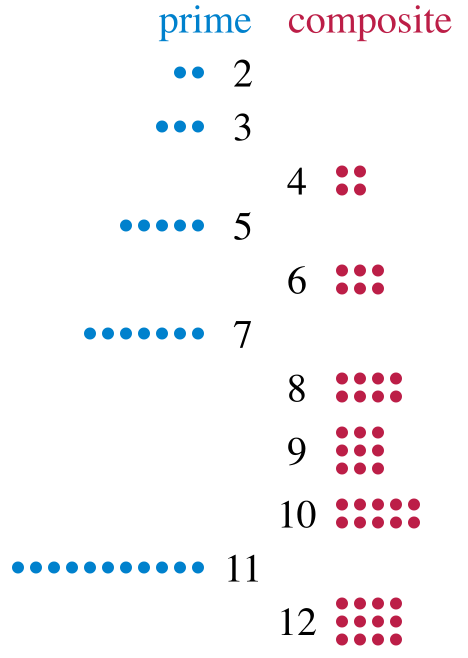The Wonderful World of Prime Numbers
If a seemingly useless class of numbers as primes could serve as the linchpins of internet commerce, what might lie ahead for these special types of primes?
Numbers are fascinating. They truly are. But of all the different types of numbers that mathematics proffers, prime numbers have to be among the most interesting. Until recently, primes were thought to have no practical application in the real world; yet in the late 60's and 70's, scientists found that large prime numbers could secure the transmission of sensitive data over the internet. This discovery made mathematicians realize that no part of mathematics, however abstract or apparently useless, was devoid of potential application.

The Amazing Primes
The prime numbers are fascinating in and of themselves. Who would have thought among the famous mathematicians of a few hundred years ago that these numbers would actually be involved in the digital world of computers. Indeed in the field of number theory, these numbers are involved in one of the oldest standing unsolved problems of mathematics: the Goldbach Conjecture. This conjecture states that every even number greater than 2 can be expressed as the sum of two primes. It is indeed hard to imagine that some of the most intractable problems in mathematics can be stated so simply.
Much like the resistance to proof that Fermat's Last Theorem displayed, the Goldbach conjecture, which was stated by the mathematician Christian Goldbach in 1742, still remains unsolved. Mathematicians believe this conjecture is true and have shown that it holds for numbers into the quintillions range, but alas no mathematician has been able to seal the deal by coming up with a final all inclusive proof. Anyone who does slay this dragon is indubitably guaranteed instant fame and recognition.
Types of PrimesThere are currently catalogued about 100 different types of prime numbers. These range from such esoterically defined Markov primes to the more easily understood cousin primes. Of the primes that are more readily understood by the layperson---and not subject to some arcane mathematical definition or formula---we have, as previously mentioned, the cousin primes: those numbers for which both p and p+4 are prime. Examples of cousin primes are (7, 11), (13, 17), and (163, 167). We also have the emirps, which are primes that become different primes when the digits are reversed. Examples of some emirps are 13, 17, 31, 983, and 991.
We have the Fibonacci primes, or those that fall within this famous sequence. Examples of these are 2, 3, 5, 13, and 89. There are palindromic primes: those primes which remain invariant when read backwards. Examples are 101, 131, 11411, and 3331333. Then we have twin, triplet, and quadruplet primes. Examples of the first are (3,5) and (227, 229); the second (5,7,11) and (311, 313, 317); and the third (5,7,11,13) and (5651, 5653, 5657, 5659). In the latter two cases, you might want to think of why the numbers must jump by four in one position.
Of course, there are more exotic types of primes such as repunit primes and Solinas primes, and interesting sounding primes such as lucky and happy primes. Those interested enough can look these up and see what types of specific numbers these are. Yet what I think is most interesting of all is the following: if a seemingly useless class of numbers as primes turned out to be the linchpin of internet commerce, what other applications might lie ahead for the subclasses of the set of primes that we have explored here? Definitely food for thought.
References
- Wells, David. Prime Numbers: The Most Mysterious Figures in Math. New Jersey: John Wiley & Sons.
- Fibonacci sequence
Go to @bible.com
Congratulations! This post has been upvoted from the communal account, @minnowsupport, by rufu from the Minnow Support Project. It's a witness project run by aggroed, ausbitbank, teamsteem, theprophet0, someguy123, neoxian, followbtcnews, and netuoso. The goal is to help Steemit grow by supporting Minnows. Please find us at the Peace, Abundance, and Liberty Network (PALnet) Discord Channel. It's a completely public and open space to all members of the Steemit community who voluntarily choose to be there.
If you would like to delegate to the Minnow Support Project you can do so by clicking on the following links: 50SP, 100SP, 250SP, 500SP, 1000SP, 5000SP.
Be sure to leave at least 50SP undelegated on your account.
@rufu I have a minor query. How have prime numbers acted as lynchpins of internet commerce?